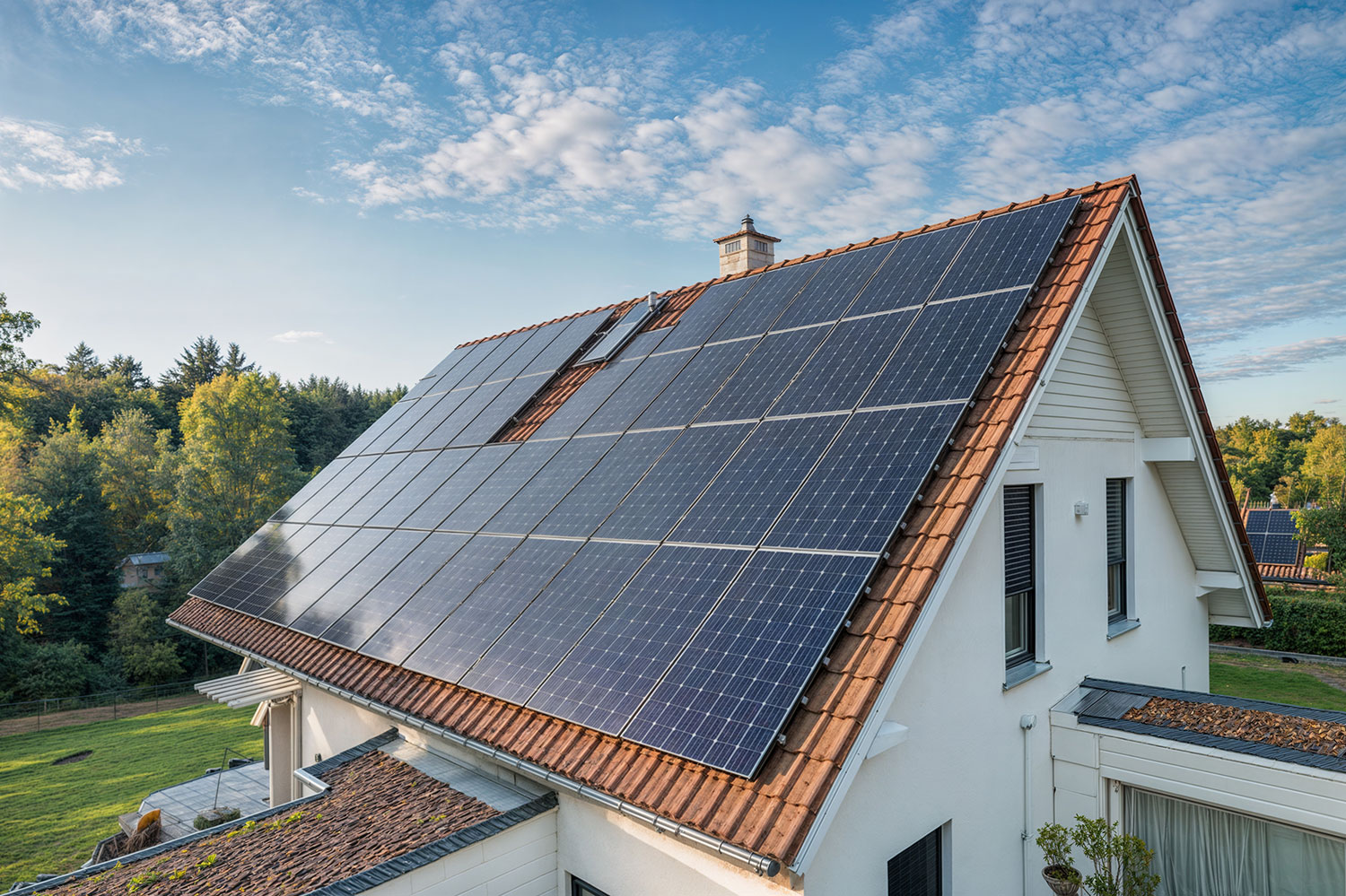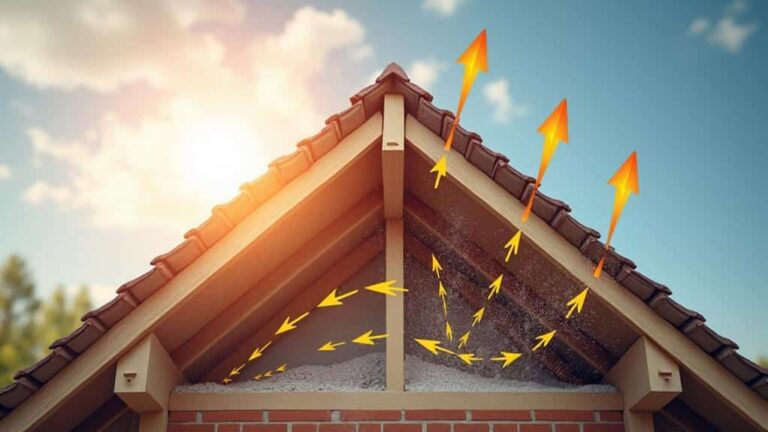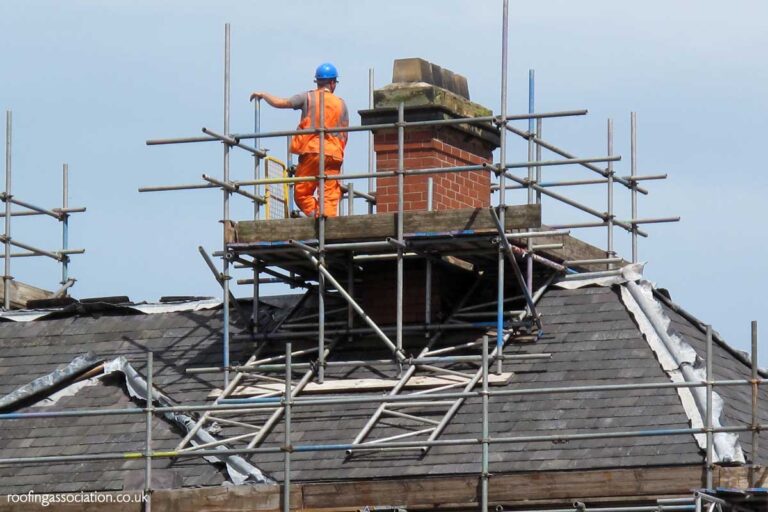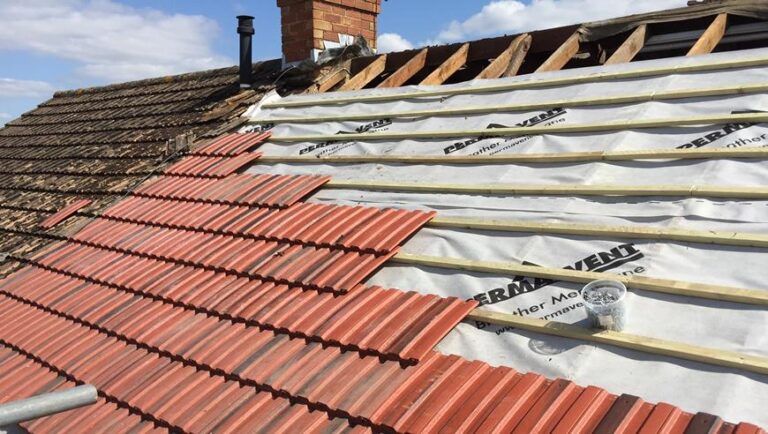Solar panel installations on roofs continue to increase across the UK but are homeowners are asking if their roofs are ready for the solar panels and if a re-roof is required before the installation.
Is your roof ready for solar panels?
Purchasing solar panels is a long term investment and once installed it can be a big task to remove them. Solar panels have a lifespan of around 25-30 years so once installed you want the peace of mind they you will not have to change them again.
This is why it is essential that your roof is ready for the solar panels and why it may be a good idea to get a re-roof before the solar panel installers arrive. Continue reading to find out more.
Why Roof Condition Matters
Solar panels are heavy, stand in place for a long time and expensive to remove them and install again.
To know whether your roof is ready you need t ask yourself:
How old is your roof?
Has it been repaired recently?
Are there signs of wear—like damaged tiles or small leaks?
Installing panels on a weak roof is like building a house on cracked foundations.
Key risks of ignoring your roof:
Higher costs later: Removing panels to fix the roof in 5 years can cost £1,000–£2,500.
Water damage: Existing weak spots may worsen under the weight of panels.
Structural issues: Some roofs simply can’t support the load.
Example:
A couple in Norwich installed solar panels in 2020 without checking the roof’s condition. Within two years, they noticed water seeping into the attic. Turns out the roof decking was rotting. The panels had to be taken down for a full roof replacement. Cost? Nearly £7,000, plus lost solar output during repairs.
How Long Should a Roof Last?
The Point Roofing team say that a roof life expectancy depends on the material:
Clay tiles: 40–50 years
Slate: 60–100 years
Metal roofs: 40–70 years
Flat roofs (felt or membrane): 10–30 years
Adam a roofer from Point Roofing said “If your roof has fewer than 10 years left, a re-roof is often the better move before installing panels”.
Even if it has 10–15 years, consider this:
Do you want to pay twice for installation—once now, and again when the roof fails?
What Does Re-Roofing Involve?
Re-roofing doesn’t always mean a full replacement.
You have options:
Full tear-off: Removes everything down to the decking. Best for long-term durability.
Partial re-roof: Fixes only the section where panels will go. Might be enough if the rest of the roof is solid.
Costs vary by material and location. In the UK:
Tile re-roof: £6,000–£12,000
Flat roof replacement: £1,500–£4,000
Investing now could save more later, especially if you’re planning to stay in your home for a decade or longer.
Benefits of Re-Roofing Before Solar
If you are still not convinced, here are some more reasons why our team at Point Roofing believe a re-roof before installation is the best way to go.
1. Avoid Double Labour Costs
Removing panels later costs both time and money.
Most solar companies charge £100–£250 per panel for removal and reinstallation. For a typical 16-panel system, that’s up to £4,000 just to access the roof.
2. Protect Your Investment
Solar panels are tough but only as tough as what’s underneath.
A new roof gives peace of mind. It supports the system properly and prevents weather-related issues.
3. Better Warranties
Roofers often offer 20–30 year warranties on new roofs.
Solar installers may void panel warranties if they’re installed on an unstable or worn-out roof. Don’t risk it.
4. Improved Efficiency
New roofing materials can improve energy efficiency.
For example:
Cool roofs reflect sunlight, reducing heat build-up.
Metal roofs pair extremely well with solar panels, even increasing panel performance in hot months.
When You Don’t Need a Re-Roof
Not every homeowner needs to re-roof before going solar. Sometimes, your current roof is good to go.
Here’s when you can probably skip it:
Your roof is less than 10 years old and shows no signs of wear.
You have a durable roofing material like slate or metal.
A recent roof inspection confirms it’s structurally sound.
Your solar installer and roofer both sign off that no issues are likely for 20+ years.
Pro tip:
Even if re-roofing isn’t needed now, keep records of the inspection and any repairs done. It may come in handy for warranty claims later.
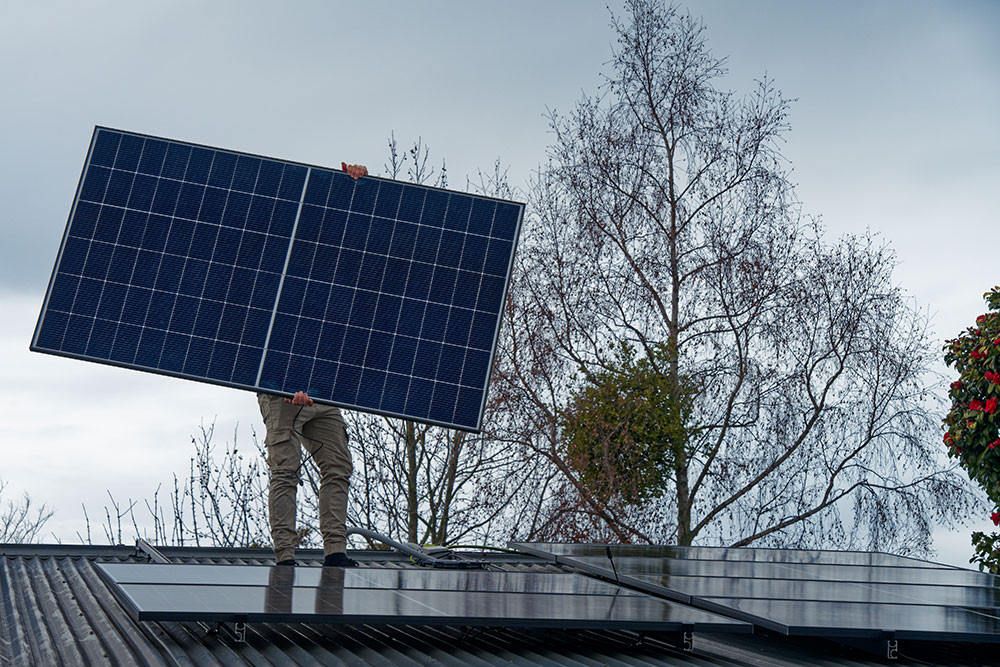
What Do Experts Recommend?
Most solar professionals advise to book a full roof assessment first.
Some companies even offer roof inspection as part of the solar consultation.
Ask your installer:
How long will the solar panel warranty last?
Do you partner with a roofing company?
Will panel mounting void any part of my roof warranty?
Better yet:
Bring in a qualified roofing contractor like us at Point Roofing for a second opinion. We can assess your roof, make any necessary repairs and communicate with the solar panel company to get your roof ready for the installation process.
Financial Considerations
Worried about the cost of re-roofing? It’s a valid concern. But consider:
Many homeowners finance roof and solar upgrades together.
Some UK schemes, like the ECO4 grant or Home Upgrade Grant, may cover part of the cost.
Spreading the cost across a solar loan makes monthly payments manageable and you save on electricity.
Real-world example:
A homeowner in Norwich who we worked with bundled a £6,500 re-roof with a £9,000 solar installation under a green home improvement loan. Their monthly loan cost is about £145, but they now save £80/month on energy bills that are expected to rise over time.
Final Checklist: Are You Roof-Ready?
Before installing solar, check the following:
Roof age: Under 10–15 years
No signs of damage, sagging, or leaks
Material compatible with solar mounting
Professional inspection completed
Installer confirms long-term durability
If you answer no to any of the above, it’s worth investigating a re-roof now. Contact us and we would be happy to come and assess your roof and make a plan for you.
Think Long Term
Going solar is a big commitment. So is your roof. Both should last decades. Why risk needing major work just a few years in?
Ask yourself:
Would you rather pay a little more now—or a lot more later?
By re-roofing before solar installation, you protect your home, your investment, and your peace of mind.


